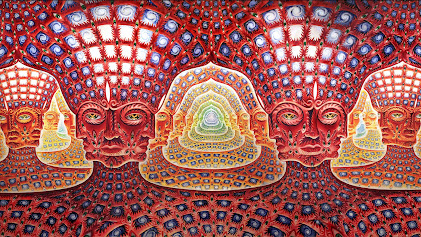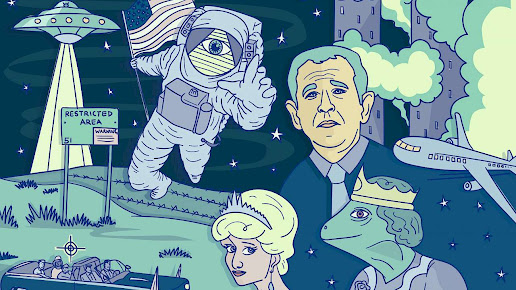Blog #4 Is DMT Misunderstood?
First and foremost, I don't condone nor encourage any consumption of any illegal drugs. This is just controversial information.
DMT is a naturally occurring psychedelic substance that can be found in certain plants and animals. It is also produced by the human body in small amounts. DMT is often referred to as the "spirit molecule" due to its alleged ability to induce mystical and transcendent experiences. Advocates of DMT claim that it can be used to treat a variety of mental health conditions, such as depression, anxiety, and addiction.
One of the most controversial benefits of DMT is its potential to induce spiritual experiences. Many users of DMT report feeling as though they have had a profound and life-changing encounter with a higher power or a greater sense of purpose. Some proponents of DMT claim that it can be used as a tool for personal growth and development, allowing individuals to gain a deeper understanding of themselves and the world around them.
Another potential benefit of DMT is its alleged ability to treat addiction. Some researchers believe that DMT may be able to help individuals overcome addiction by altering the brain's reward system and reducing the desire for addictive substances. However, more research is needed in this area before any definitive conclusions can be drawn.
Despite these potential benefits, there are also a number of risks associated with DMT use. One of the most significant risks is the potential for negative psychological effects. DMT can induce intense hallucinations and altered states of consciousness, which can be frightening and disorienting for some individuals. In rare cases, DMT use has been linked to psychosis and other mental health conditions.
DMT is also illegal in many countries, which means that users risk legal consequences if they are caught possessing or using the substance. Additionally, because DMT is often sourced from illicit channels, users may be at risk of consuming impure or contaminated substances.
Another potential risk associated with DMT use is the possibility of physical harm. DMT can cause a rapid increase in heart rate and blood pressure, which can be dangerous for individuals with pre-existing heart conditions. Additionally, because DMT can induce a state of disorientation and loss of coordination, users may be at risk of injury or accidents.
While DMT has been touted as a potentially valuable tool for spiritual exploration and mental health treatment, its use remains highly controversial. It is important for individuals considering DMT use to be aware of the potential risks associated with the substance and to approach its use with caution. Additionally, more research is needed in order to fully understand the potential benefits and risks of DMT use. Ultimately, individuals should consult with a qualified healthcare professional before making any decisions about using DMT or any other psychoactive substance.



Comments
Post a Comment